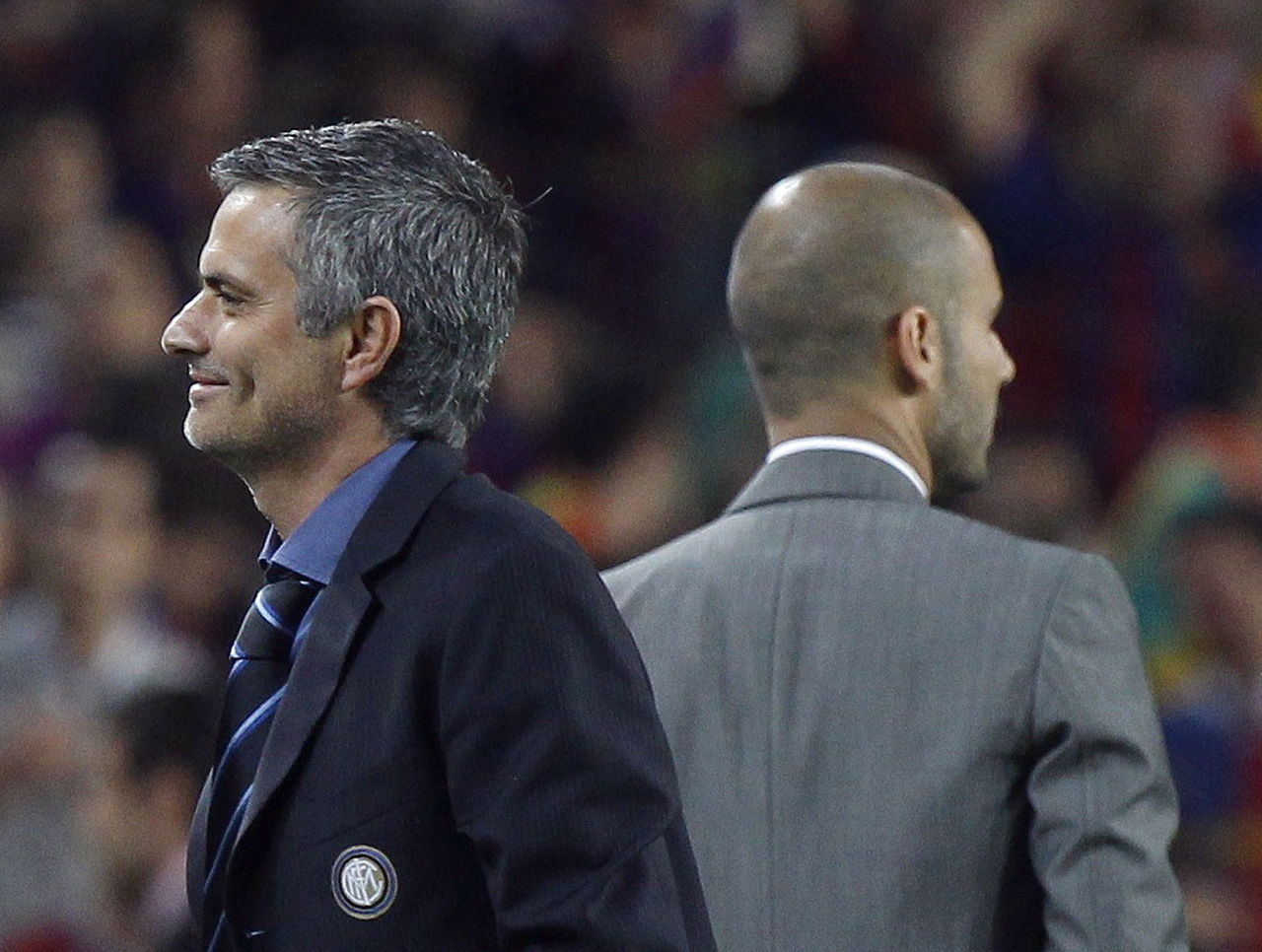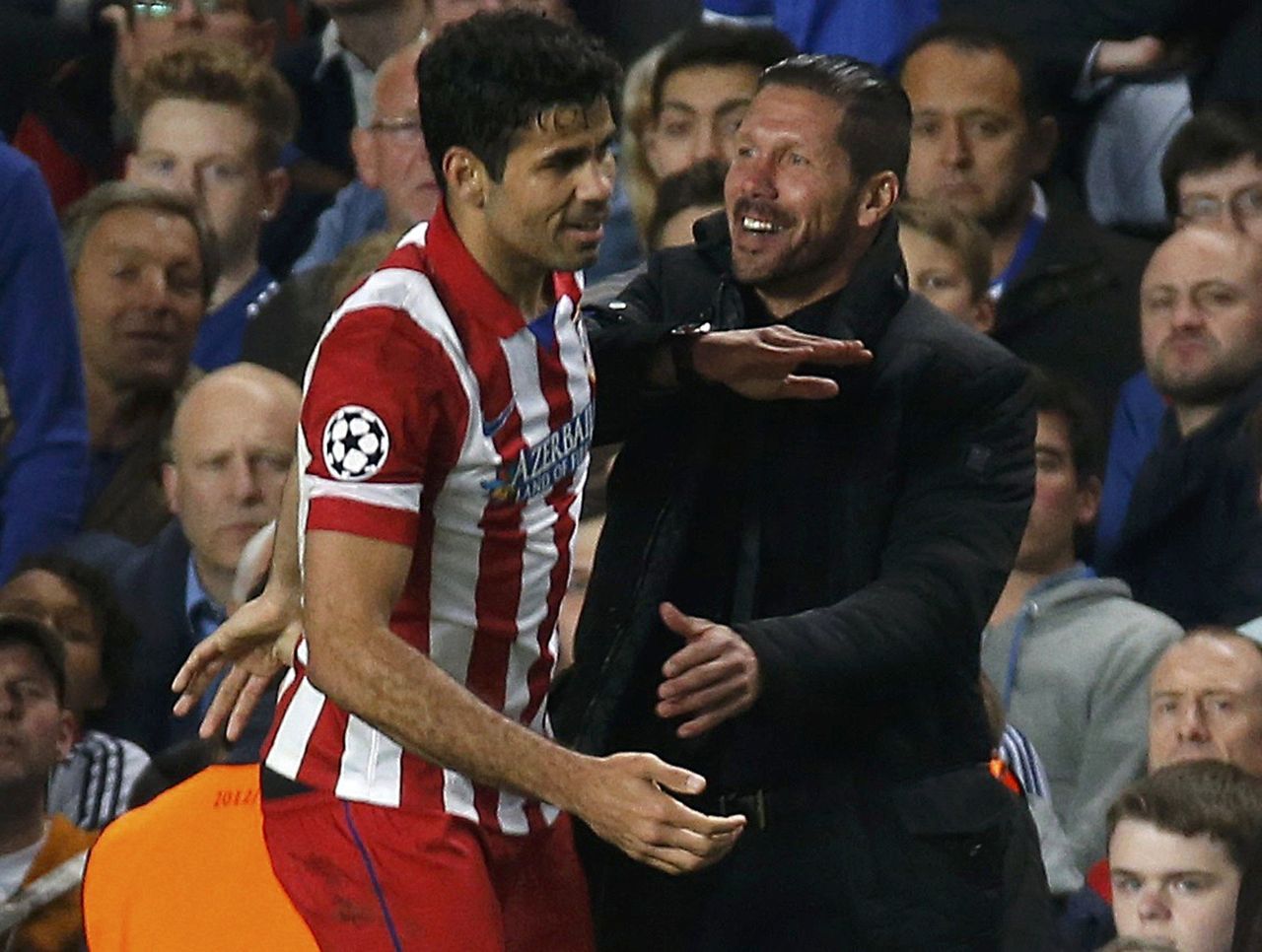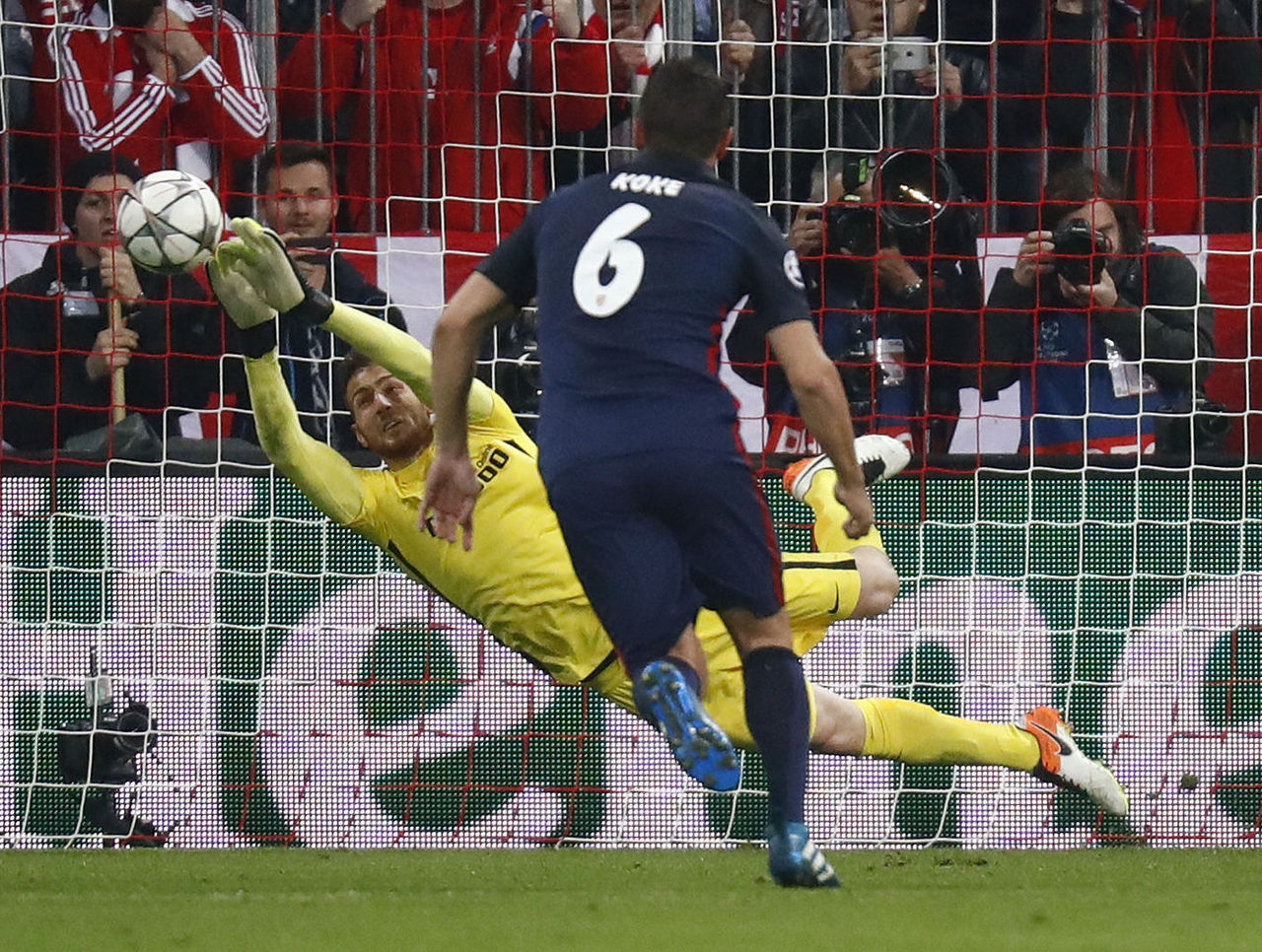Simeone's victory follows his own blueprint, not Mourinho's
Six years have passed since Jose Mourinho's Inter Milan silenced the Camp Nou. The Italian club defied both expectations and tactical convention as it eschewed the ball away to Barcelona in the second leg of its 2010 Champions League semi-final. Inter finished up with just 14 percent of possession, but all of the glory, losing 1-0 on the night but winning the tie 3-2 on aggregate.
Mourinho took great delight in proclaiming afterwards that this had been his plan all along. "We didn't want the ball," he insisted. "Because Barcelona were pressing and would only get it back, while we lost our shape. I didn't want us to lose our shape, and that's why I didn't want us to have the ball - so we just kicked it far away."
Perhaps that was even the truth. Or maybe Inter's players simply had no choice, finding themselves outmanned and overwhelmed after Thiago Motta was sent off in the 28th minute.

What we can say is that Mourinho has developed the tactic since, his teams routinely taking a reactive approach in key fixtures. When Manchester United visited Stamford Bridge last April needing a win to keep its title hopes alive, the Portuguese manager set his team up in a similar mode. Chelsea held the ball for less than half as long as its opponent but scored the only goal of the game.
Diego Simeone is no Mourinho clone. Indeed, it's hard to think of many managers who are more emphatically their own person than the Atletico manager. This is the man who publicly congratulated his players' mothers on giving them all such big testicles.
But there are similarities in the way that Simeone and Mourinho approach a game. When Diego Costa was asked last year about his experiences under each manager, he replied that they "have plenty of things in common, such as the passion for the game or the levels of commitment they demand from players."

From a tactical standpoint, he stressed, they were different. But what about their overarching philosophies? Among the more revealing comments that Simeone has made since becoming Atletico manager five years ago was his suggestion that "Games are not won by those who play well but by those who play safe."
This is a mantra that Mourinho could get on board with. The Spanish journalist Diego Torres, in his book "The Special One," sought to lay out the Portuguese manager's "code" for winning big games. This is what he came up with:
- The game is won by the team who commits fewer errors.
- Football favours whoever provokes more errors in the opposition.
- Away from home, instead of trying to be superior to the opposition, it's better to encourage their mistakes.
- Whoever has the ball is more likely to make a mistake.
- Whoever renounces possession reduces the possibility of making a mistake.
- Whoever has the ball has fear.
- Whoever does not have it is therefore stronger.
Consciously or not, Atletico certainly seemed to be following those principles during the first 30 minutes of its Champions League semi-final second leg away to Bayern Munich on Tuesday. Following in the footsteps of Mourinho's Inter, Atletico found itself playing in a Champions League semi-final against a Pep Guardiola side that had been billed as the best in the world.
Bayern, just like that 2010 Barcelona team, was known to thrive on possession. And Atletico, just like Inter, was content to let Bayern have it. Approaching the game’s half-hour mark, Bayern had held 75 percent of the ball, but barely created a clear-cut chance.
That was until the host exposed the flaw in Torres' code. Namely that it really is not so difficult to commit errors when you are out of possession as well. Augusto Fernandez proved the point by going in clumsily on David Alaba on the edge of the box. Xabi Alonso whipped a deflected free-kick into the corner of the net.
The mistakes kept on coming, with Gimenez giving away a penalty just moments later. Were it not for a stunning save from Jan Oblak to deny Thomas Muller from the spot, Atletico might have been sunk.

Instead, it showed that it's about more than just backs-to-the-wall defending. Atletico needed to score and it did, Antoine Griezmann displaying breathtakingly cool nerves as he sprinted through to convert his team's first real opportunity of the game, even if this goal should probably have been disallowed for offside.
But what impressed most of all was how Simeone's team played thereafter. Bayern continued to hog the ball, but not because Atletico was letting its opponent have it. Even after the Germans had scored again to move back within one goal of an aggregate victory, the visitor refused to simply camp out on the edge of its own box and hoof the ball away as Inter had done to defy Guardiola six years earlier.
Instead, Atletico quite actively sought out a second goal of its own. At times, its incaution in that pursuit was almost costly. Gabi's loose touch on an 81st-minute break set up a swift Bayern attack that ended with Oblak spilling the ball into the middle of the area as he went up over Muller to intercept a cross into the box.
More reckless still was the 95th-minute charge which saw both Fernando Torres and Thomas Partey sprint off ahead of Yannick Carrasco, who promptly gave the ball away in midfield - leaving their teammates outnumbered as Bayern swept forward one last time. But the attack broke on Atletico's last line of defence like so many others before it.
Related: Atletico upsets Bayern Munich, books Champions League final berth
This would be a narrow victory for the Spaniards, built on the finest of margins. But it was a creditable one all the same. Atletico silenced the Allianz Arena just as Inter once did the Camp Nou. They did it playing Simeone's football, not Mourinho's.
Atletico in the Champions League under Diego Simeone:
— Squawka Football (@Squawka) May 3, 2016
2013/14: Finalists
2014/15: Quarter finals
2015/16: Finalists pic.twitter.com/WrnuY7kjhz
HEADLINES
- 5 surprise teams closing in on Champions League berths
- Tuchel: Gnabry 'will play and score' vs. Madrid but Sane doubtful
- Olympiacos make history by winning UEFA Youth League
- Lyon score 3 times in last 10 minutes to stun PSG in Women's UCL semis
- Chelsea Women hand Barcelona 1st home defeat in over 5 years